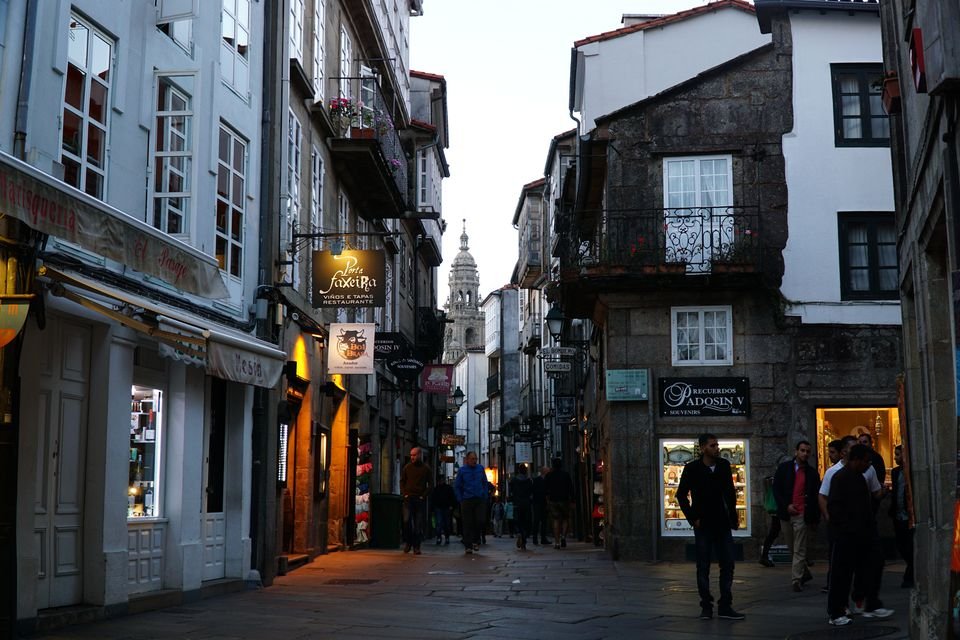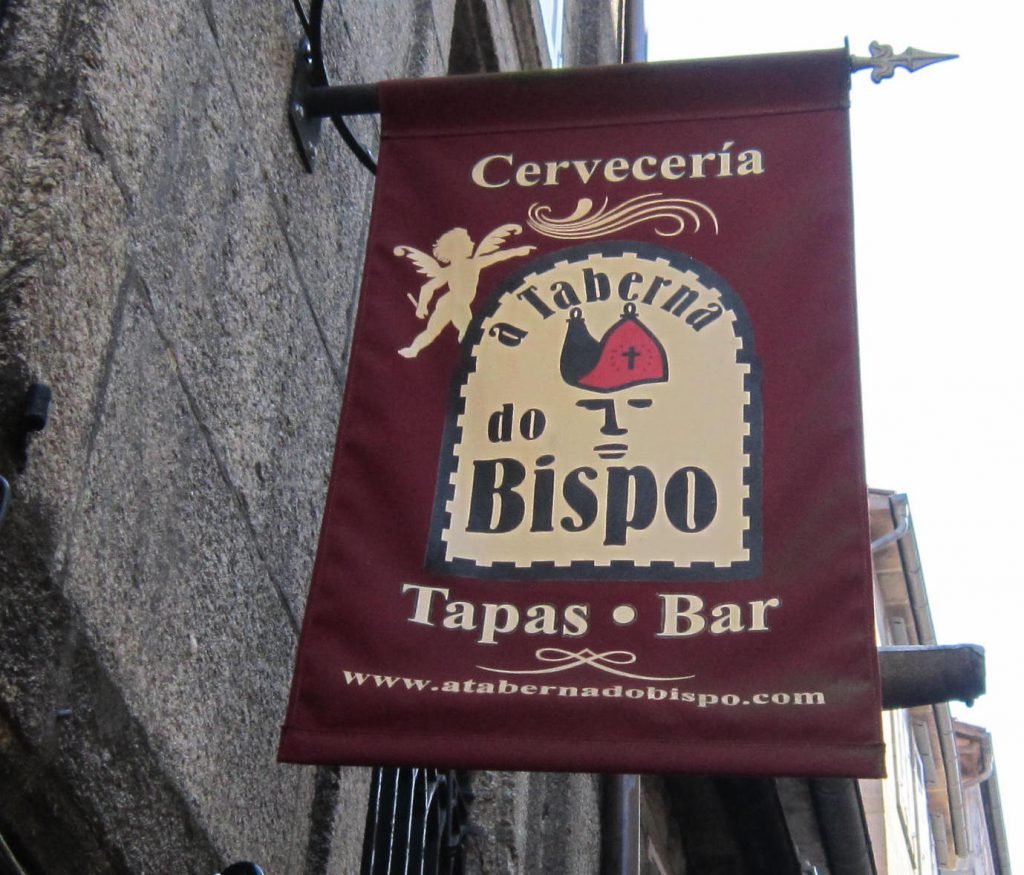
Lost in Translation
It was November, 1971, and after two months of hitchhiking around northern Europe and having wonderful experiences, I realized it was time to head south like a migrating bird as winter closed in. It took me three days to cross France and when I reached the Spanish border, I headed west on a whim along the north coast of Spain, instead of due south towards Barcelona, Madrid and the Mediterranean beach resorts, as virtually all the other remaining backpackers did. Arguably, 1971 was the key year of the seventies’ mad rush to Europe by young North Americans and it seemed virtually every place I went, except Northern Ireland, was jam-packed with fellow budget travellers. I enjoyed the company of my fellow backpackers, but yearned for a place where I could interact more with the locals.
I wanted to pick up some Spanish and really connect with people, which worked reasonably well, with a couple of very embarrassing exceptions. The numbers of tourists of all kinds had dropped off considerably by November because of the cold and for many the need to get back to college in early September. I was pleasantly surprised not to see a single fellow backpacker as I thumbed my way along the northwest coast, finally arriving in the small city of Santiago de Compostela, which I had never heard of. The city’s name literally means the Tomb of St. James, one of the most revered figures in the Catholic world.

It was love at first sight. I was dropped off in the old city, which immediately struck me as extraordinarily medieval in appearance. It was like going through a time tunnel and emerging in the 13th century, when some of the old stone buildings in Santiago were constructed. I didn’t even know there was a new city nearly surrounding the old one until I left five weeks later, by far my longest stay in any place on my eight-month journey.
I was strolling through one of the many fabulous plazas with my backpack on, getting a feel for Santiago, when I encountered two bearded young men passing by, one of whom said in perfect English, “Hi man, we’re on our way to make some banana bread, why don’t you come along?” The idea of declining never even crossed my mind. It turned out these two were part of a small group of Cuban American students at the University of Santiago de Compostela. They were attending medical school there because they were totally fluent in Spanish and it was far less expensive than attending an American medical school. We hit it off immediately and they invited me to stay with them for a few days. We all had a great time and hung out together during my time in Santiago. All their friends were local students and it was wonderful to get to know them as well.
My student pals attended classes and did their school work, while I explored the fascinating old city, but almost every night we cruised the tapas bars carved into the narrow stone streets – almost always standing at the bar, ordering vino tinto or vino blanco, while chatting and joking and dining away on the delicious tapas, or appetizers. Times have likely changed but back in 1971 there were no garbage pails in those bars. All the garbage was just thrown on the floor and mopped up with huge brooms at closing time, which was both cool and creepy.

Santiago is one of the great pilgrimage sites of the world. Many Catholic pilgrims and hardy hikers make the long, six-week journey there each summer from the south of France, and by a few other routes. Back in 1971 there were only a few hundred pilgrims walking to Santiago each year, and visitors could easily miss seeing any of them. In 2017 there were over 300,000 pilgrims and the numbers just keep growing. Some of the walkers come on a Catholic quest and others come for the joy of hiking and interacting with the other travellers and locals. I would love to do the walk someday.

At the heart of the old city is the Santiago de Compostela Cathedral, one of most beautiful and ornate in the Christian world, featuring Gothic, Baroque and Romanesque architecture. The Cathedral’s construction in the heart of the old city began in 1075 and was completed in 1211, a 136-year project to honour the tomb of Saint James, which it is claimed lies beneath.

Santiago is considered the third holiest city in the Catholic world, behind only Rome and Jerusalem. The old city is simply spellbinding and beautiful. Elaborately carved stone facades open onto grand plazas, and the maze-like narrow winding streets reek of old world charm. Sadly, there is, or was, extreme poverty as well and I was often approached by beggars, which I did not experience anywhere else on my trip, including Africa. I was on a very tight budget, so I usually gave a small amount. The image that I cannot erase from my memory is a poor woman with a baby in her arms, stopping me, and saying with great emotion, “Misericordia senor. Misericordia. Por favor, leche (milk) por me bebe.” For her I emptied my pockets.
Soon after my arrival an English backpacker came to Santiago and quickly became a part of our group. The two of us decided to rent and share a very basic, inexpensive room for a month. Both of us bought Spanish dictionaries and engaged in a comical race to see who could learn the most Spanish in a month. We had a fun testing each other, although it wasn’t the ideal way to learn a language. Our local Spanish friends wanted to brush up on their English while we tried out our Spanish on them, leading to lots of laughs. One night the laughs were on me. I was on the street with one of my Spanish pals when a couple of brash young Spanish males approached me and one asked, “Es usted maricon”? I smiled and said, “Yes, I am an American citizen, but I consider myself a Canadian.” My pal pulled me away and said “No, no, no.” He explained that the guy didn’t say “American,” he said ‘maricon,’ an insulting Spanish term for a gay person, equivalent to ‘fag’ in English, which made me laugh. Not because I looked down on gay people but because suggesting any man with long hair must be gay was profoundly stupid. These guys were clearly trying to provoke a fight and were totally flustered by my smiling, friendly and mistaken response, and wandered off, looking confused because I wasn’t insulted.
That was not my only language gaffe as I tried hard to master the language. I remember talking to an attractive young local woman at a party and communicating reasonably well in Spanish. She seemed impressed and I was enjoying her company. That’s when I asked her how old she was. In Spanish you ask someone’s age by inquiring how many years they have, but the word for years, anos, with a tilde over the ‘n,’ is very similar to the word for anus, ‘ano.’ Apparently I managed to ask this woman how many asses she had instead of how old she was, as my Spanish pals quickly pointed out to their hysterical laughter and to my great embarrassment, although the woman took it in stride. I felt very much like an ano, but kept practicing my Spanish and made a mental note not to ask any more young women about their age.
One afternoon I was eating by myself in a small Santiago café, which featured a juke box. I was enjoying the music when someone played a new song by John Lennon, called Imagine. I liked Lennon and I liked the song but the incongruity of some of the lines struck me as bizarre. The one that stopped me cold was “Imagine no possessions, I wonder if you can.” I didn’t have to imagine having no possessions as the little I was carrying in my backpack was all I owned and I was content not to be burdened with more. John Lennon was a multi-millionaire rock star singing from a state-of-the art recording studio. Obviously he was the one who could hardly imagine what it would be like to have no or few possessions, although he may have experienced something like that in his youth. I sat in the café, eating a cheap meal, enjoying myself and laughing at a very wealthy person with loads of expensive possessions lecturing me on the virtues of poverty.
I loved my time in Santiago and missed my Spanish and Cuban American pals, but it was time to head south to Portugal as Christmas neared and my mind turned to the temptation of travelling in Africa.